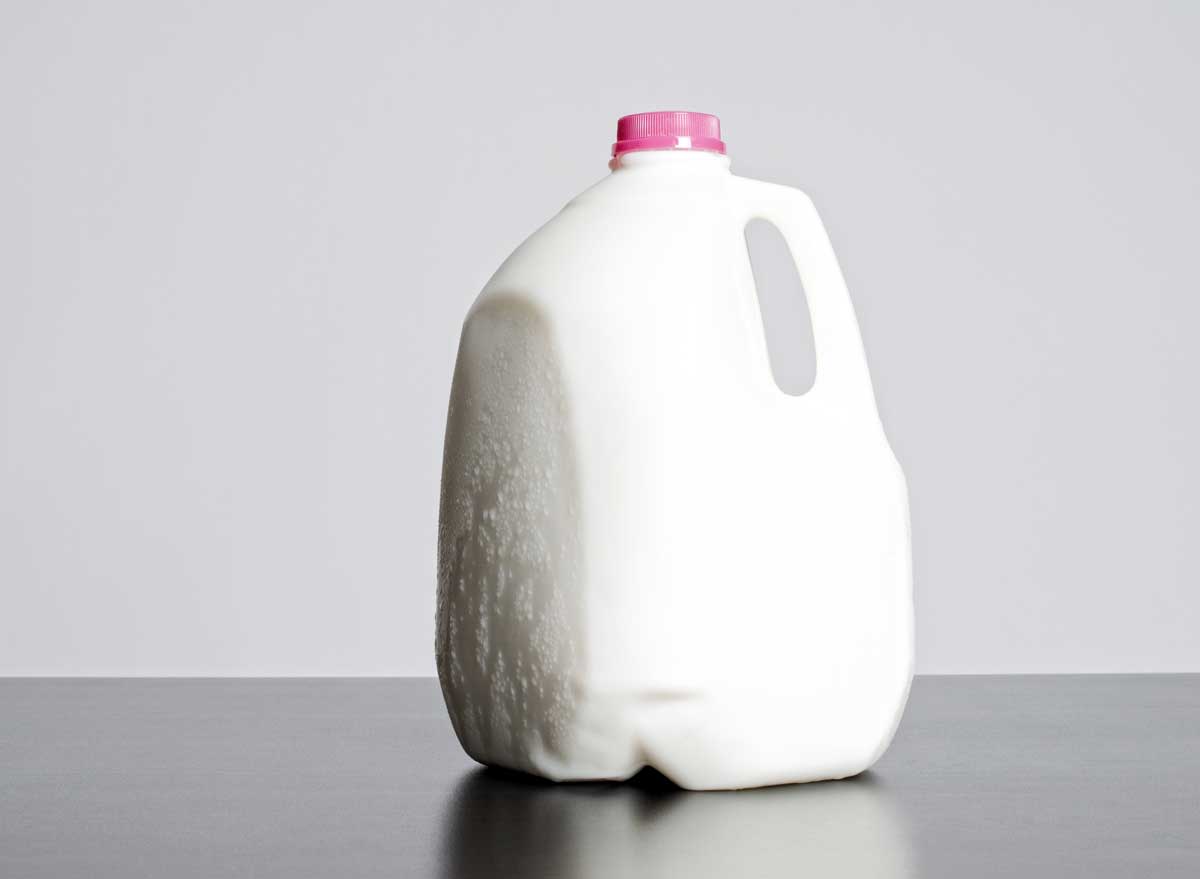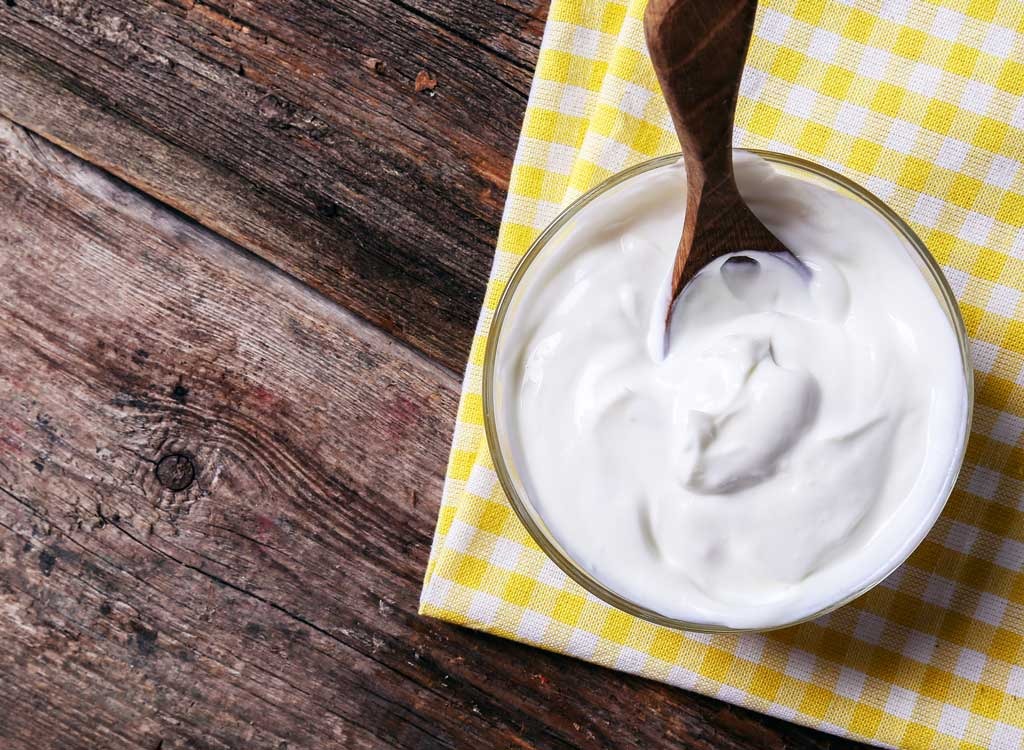Surprising Side Effects of Not Eating Enough Calcium, Says Science
We all remember those commercials with our favorite celebrity donning a milk mustache. Although silly, those milk mustaches ingrained a key message for many of us: dairy is packed with nutrients that support strong, healthy bones. Namely, calcium is the superstar nutrient found in dairy products. Without calcium, our muscles and bones wouldn't function properly. Turns out, there are many mega side effects of not eating enough calcium in your diet. Here's what you need to know, and for even more healthy eating tips, be sure to check out our list of The 7 Healthiest Foods to Eat Right Now.
Muscle Spasms

Not eating enough calcium will cause muscle spasms! Calcium works at the cellular level within the muscles to contract properly during activity. Thus, we need adequate calcium to efficiently move and exercise to our fullest potential. There's a reason milk has been long recommended as a post-workout drink! The calcium and natural electrolytes help replenish the muscles after intense physical activity.
In fact, since the heart is a muscle, calcium is critical in the contraction mechanism that affects your heartbeat! To read more about how calcium impacts the cardiovascular system, here's more on this one major side effect.
Lethargia

Without enough calcium, you may feel extreme fatigue. Oftentimes, this is related to poor muscle function without enough calcium from your diet. Remember, since muscles use calcium to contract, you may feel weak or lethargic without optimal levels.
Further, sometimes calcium deficiency can be a result of a magnesium deficiency which can also cause fatigue. Calcium is the ying to magnesium's yang. While calcium helps contract our cells, magnesium helps relax our cells. The key here is to get a balance of calcium-rich foods and magnesium-rich foods from your diet, like having one of these magnesium-rich options with yogurt and cheese.
Lower Blood Pressure

Calcium has the potential to lower blood pressure. Increased calcium from a diet change or through supplementation has been shown to have this effect! Although, take caution before beginning a calcium supplementation regimen, and always consult a doctor before adding this into your routine.
Calcium isn't the only way to improve your health, check out these doctor-approved ways to lower your blood pressure!
Hair growth

Calcium, among several minerals, aids healthy hair growth and can improve hair health, especially when combined with adequate protein and Vitamin D. Vitamin D promotes proper absorption of calcium, and the body produces it once exposed to sunlight—score! Decreased calcium absorption will cause hair loss and hair thinning.
Low Bone Density

Also known as osteoporosis, low bone density is directly correlated with not eating enough calcium. This condition occurs when bones become weak and brittle over time. Osteoporosis puts you at high risk for bone fractures, but there are many other correlations to developing osteoporosis—like going through menopause.
Mood and Memory

From decreased PMS moodiness to improved depression symptoms, calcium is known for a vast effect on mood and memory. This small—yet mighty—nutrient has been shown to have a calming effect on the brain and nervous system, particularly when combined with magnesium. In fact, ongoing research supports that calcium homeostasis—the way calcium status is balanced by the body—is disrupted in Alzheimer's patients.
Weight Trends

Adequate calcium intake is associated with lower body weight. This correlation doesn't necessarily mean that calcium causes direct weight loss, however we do know that folks who consume adequate calcium often are able to maintain a healthy weight range!
Dairy isn't the only source of calcium in a nutrient-dense diet. If you aren't a big milk drinker, you may wonder, what are the options for getting optimal calcium?
If dairy isn't your thing, don't worry. Check out these 20 calcium-rich, plant-based alternatives!









